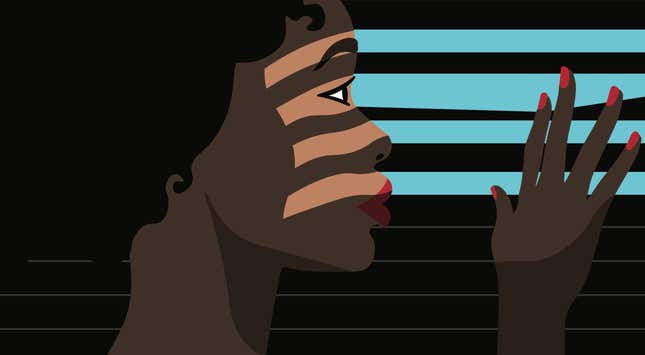
The news about the state of the nation’s mental health was alarming even before the traumatic events of this past week—when news cycles and social media timelines were flooded with news about racists, deadly, and un-redressed assaults on black people.
On Tuesday (which, somehow, wasn’t three years ago) a Census Bureau report showed a third of all Americans are showing signs of clinical anxiety and depression. The data was collected between April 23 and May 19, and showed nearly 40 percent of people who identified as black experienced symptoms of anxiety or depressive disorders during that time.
Much of the strain reflected in this data can be credited to the ongoing coronavirus and a looming recession that has gripped the country for months, but after a week full of chaotic protests over the unjustified killing and targeting of black people, it’s not a stretch to assume that black communities today, more so than the weeks prior, are struggling to cope, emotionally and mentally.
Understanding “spoon theory” can help traumatized people and communities manage the ongoing crises. Coined by disability activists—in particular, those who have chronic illnesses—this approach is built on the idea that we all have a limited amount of energy, which can be measured out in “spoons.”
Let’s say that each day, you have 20 spoons. Some days, it may take 10 spoons just to get out bed and take a shower. On other days, you may feel like you haven’t even used up all your spoons. Months ago, when I was still largely unaware (or in denial) about my own mental state, I would sit at my desk, hours after I finished working. I was confused about why I just didn’t have the energy to pack up and go to the subway at 5 pm, just like all my other coworkers had (I wanted to avoid crowded subways and slow trains, I told myself). Learning about spoon theory helped crystallize what was happening: by the end of the workday, I had simply run out of spoons.
Mental wellness advocate and therapist Jor-El Caraballo breaks it down this way:
“[Spoon theory] is a premise that we can all use to better understand our capacity to cope and manage through our daily changes and circumstances. For black people, who unjustly carry the burden of race-based trauma for example, we can imagine that this ongoing burden takes its toll on our mental health,” Caraballo told The Root.
The theory grew so popular, it became a way for people who have chronic conditions to help identify and connect with each other: as “spoonies.” As more research connects the dots between chronic stress, racism, and health, and as more local and state governments identify racism as a public health issue, it may be appropriate to look at racism and racist behavior as a chronic condition—one regularly inflicted by both systemic forces and interpersonal encounters on black people. Spoon theory, then, can help those dealing with racial trauma be gentle with themselves as they face an onslaught of distraction and distress, while still dealing with “regular” ups-and-downs of pandemic life.
“Some days we may have more ‘spoons’ to manage the emotional weight, while other days, daily activities might require much more energy and support to get to a ‘normal’ level of functioning. Those days we may need more rest or more support,” said Caraballo. “By being able to gauge how many spoons each task requires, we can more accurately understand the current capacity we have and adjust accordingly.”
This may be especially true for advocates and activists. While the recent deaths of George Floyd, Breonna Taylor, Ahmaud Arbery and Tony McDade have highlighted the importance and urgency of public, in-person protests—activism takes a toll on the body, spirit, and mind. When the work of seeking racial justice demands you perpetually dust yourself off to fight another day, spoon theory can be used to create some much needed space to honor your own needs.
In a 2017 interview with Healthline, Dawn Gibson, a black woman who lives with spondylitis, food allergies, and learning difficulties, said, “for me, the spoon theory’s highest value is that it allows me to understand myself. Our people often remind each other that we are not our diseases, and that’s true. But the Spoonie ethos allows me to make that separation intellectually.”
In 2020, spoon theory can allow black people and other marginalized communities to give some space to ourselves, and others, as more of us toggle through varying states of anxiety, depression, and stress. As Gibson explained, it can let us listen to our bodies, recalibrate our expectations, and give us permission to be gentle—even if just for a moment.
“If my body decides that we can’t keep social plans, I know that’s not me being flaky. There’s no help for it,” said Gibson. “That eases the heavy cultural burden to just gut it out or try harder.”

